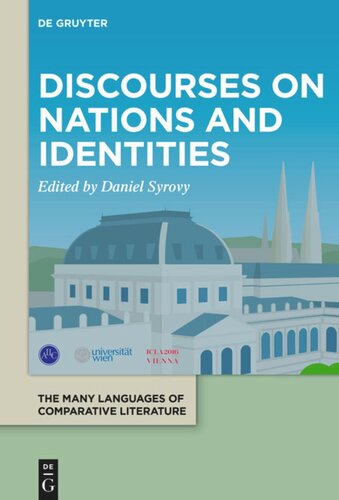

Most ebook files are in PDF format, so you can easily read them using various software such as Foxit Reader or directly on the Google Chrome browser.
Some ebook files are released by publishers in other formats such as .awz, .mobi, .epub, .fb2, etc. You may need to install specific software to read these formats on mobile/PC, such as Calibre.
Please read the tutorial at this link: https://ebookbell.com/faq
We offer FREE conversion to the popular formats you request; however, this may take some time. Therefore, right after payment, please email us, and we will try to provide the service as quickly as possible.
For some exceptional file formats or broken links (if any), please refrain from opening any disputes. Instead, email us first, and we will try to assist within a maximum of 6 hours.
EbookBell Team

5.0
20 reviewsOpen Access
The third volume of the collected papers of the ICLA congress "The Many Languages of Comparative Literature" includes contributions that focus on the interplay between concepts of nation, national languages, and individual as well as collective identities. Because all literary communication happens within different kinds of power structures - linguistic, economic, political -, it often results in fascinating forms of hybridity. In the first of four thematic chapters, the papers investigate some of the ways in which discourses can establish modes of thinking, or how discourses are in turn controlled by active linguistic interventions, whether in the context of the patriarchy, war, colonialism, or political factions. The second thematic block is predominantly concerned with hybridity as an aspect of modern cultural identity, and the cultural and linguistic dimensions of domestic life and in society at large. Closely related, a third series of papers focuses on writers and texts analysed from the vantage points of exile and exophony, as well as theoretical contributions to issues of terminology and what it means to talk about transcultural phenomena. Finally, a group of papers sheds light on more overtly violent power structures, mechanisms of exclusion, Totalitarianism, torture, and censorship, but also resistance to these forms of oppression. In addition to these chapters, the volume also collects a number of thematically related group sections from the ICLA congress, preserving their original context.